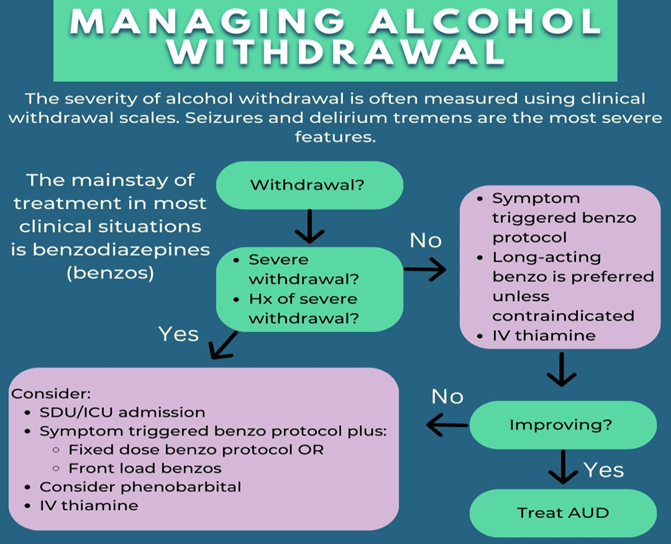A nurse is collecting data from client who has just begun therapy with alprazolam to treat anxiety. The nurse should observe the client for which of the following adverse effects of this medication?
Hypertension
Hearing loss
Sedation
Bradycardia
The Correct Answer is C
A. Alprazolam, a benzodiazepine, typically doesn't cause hypertension. Its primary mechanism of action involves modulation of GABA receptors in the central nervous system, leading to anxiolytic effects rather than effects on blood pressure regulation.
B. There's no documented association between alprazolam use and hearing loss.
Benzodiazepines like alprazolam primarily affect the central nervous system and do not target auditory structures.
C. Sedation is a common side effect of alprazolam due to its CNS depressant properties.
Patients often experience drowsiness, fatigue, and impaired cognitive function, especially when initiating therapy or when doses are increased.
D. Alprazolam typically doesn't cause bradycardia. While it can have mild effects on heart rate, such as tachycardia, significant bradycardia is not a documented adverse effect.
Nursing Test Bank
Naxlex Comprehensive Predictor Exams
Related Questions
Correct Answer is D
Explanation
A. Methadone is an opioid agonist primarily used for the management of opioid dependence and chronic pain. It is not indicated for the treatment of alcohol withdrawal or delirium.
B. Acamprosate is a medication used to support abstinence in individuals who have recently stopped drinking alcohol. It is not typically used to manage acute alcohol withdrawal symptoms such as delirium tremens.
C. Disulfiram is a medication used as an aversive therapy to deter alcohol consumption by causing unpleasant reactions (e.g., flushing, nausea, vomiting) when alcohol is ingested. It is not indicated for the treatment of alcohol withdrawal or delirium.
D. Lorazepam is a benzodiazepine commonly used to manage alcohol withdrawal symptoms, including delirium tremens. It acts by enhancing the inhibitory effects of gamma- aminobutyric acid (GABA) in the central nervous system, thereby reducing the symptoms of alcohol withdrawal such as seizures.

Correct Answer is A
Explanation
A. Furosemide, a loop diuretic, can increase lithium levels by reducing renal clearance of lithium, leading to lithium toxicity. Monitoring lithium levels and adjusting the dose as necessary is essential when co-administered with furosemide.
B. Gentamicin, an aminoglycoside antibiotic, is not known to interact significantly with lithium.
C. Alprazolam, a benzodiazepine, is not known to interact significantly with lithium.
D. Warfarin, an anticoagulant, is not known to interact significantly with lithium.
Whether you are a student looking to ace your exams or a practicing nurse seeking to enhance your expertise , our nursing education contents will empower you with the confidence and competence to make a difference in the lives of patients and become a respected leader in the healthcare field.
Visit Naxlex, invest in your future and unlock endless possibilities with our unparalleled nursing education contents today
Report Wrong Answer on the Current Question
Do you disagree with the answer? If yes, what is your expected answer? Explain.
Kindly be descriptive with the issue you are facing.
